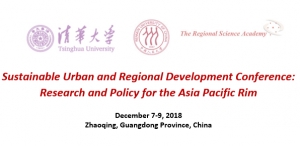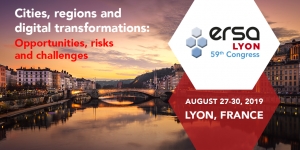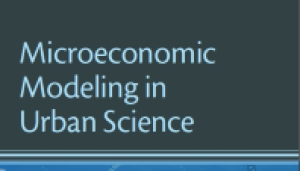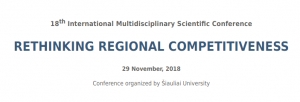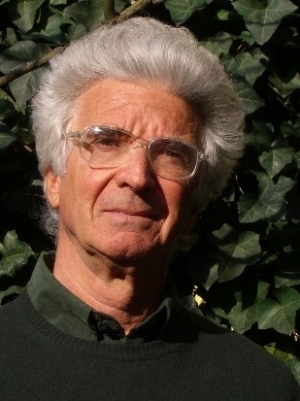Archives
Elisabete Martins
Lecturer/Senior Lecturer at NIDEA, University of Waikato
Lecturer/Senior Lecturer National Institute of Demographic and Economic Analysis (NIDEA) Faculty of Arts and Social Sciences
The National Institute of Demographic and Economic Analysis (NIDEA) is the only social sciences research institute in a New Zealand university focussed specifically on demography, population economics, population health and population geography. NIDEA has a multidisciplinary team of researchers who are well known nationally and internationally for their research excellence.
Applications are invited for a continuing position focusing on population studies and demography. Candidates whose research aligns with or extends NIDEA’s current expertise in demography, Māori and indigenous population research, population health and migration are encouraged to apply.
Applicants should have a doctoral degree in a relevant social science discipline (e.g. demography, sociology, population health, geography) and have teaching experience and a research profile commensurate with the position applied for.
Current salary range for Lecturers is NZ$74,034 to $89,163 and Senior Lecturers $91,710 to $106,995 per year dependent on qualifications and experience. Note - the rank of Lecturer in the New Zealand university system is equivalent to the rank of Assistant Professor in the North American and some other systems.
Enquiries of an academic nature should be directed to Professor Francis Collins, Director of NIDEA, email: This email address is being protected from spambots. You need JavaScript enabled to view it..
Closing date: 15 November 2018 (NZ time) Vacancy number: 380417
For more information and to apply, visit www.jobs.waikato.ac.nz
Conference in Zhaoqing China with the TRSA
Sustainable Urban and Regional Development Conference: Research and Policy for the Asia Pacific Rim
December 7-9, 2018
Zhaoqing, Guangdong Province, China
This international conference is hosted by the Governments of Zhaoqing, China, Guangzhou Province, Tsinghua University, Renmin University of China, and The Regional Science Academy (TRSA). Zhaoqing, the host of the conference, is a city located in the Pearl River Delta about 40 miles upstream from Guangzhou, the capital of Guangdong Province. The Pearl River Delta has nearly 100 million residents and is one of the top three economically productive regions in China. It offers the right environment for an international gathering on sustainable spatial development. We are seeking participants who would like to present a paper at the Conference.
This is the second conference hosted by this group, with the first conference held at and hosted by Renmin University of China in Beijing in 2017. Some 150 papers were presented at the first conference and a selection of these contributions formed the contents for a special edition in one of the top regional science journals. At the forthcoming conference in December 2018, authors from several Pacific Rim Countries including from North and South America and Europe as well, and of course, from China and nearby countries will attend and present papers centering on the above theme. We expect about 200+ attendees this year.
Those wishing to present a paper should contact: Roger R. Stough, Vice President TRSA, Peter Nijkamp, Vice President TRSA, or Karima Kourtit, Executive Director TRSA, at one of the following email addresses.
Roger R. Stough This email address is being protected from spambots. You need JavaScript enabled to view it.
Peter Nijkamp This email address is being protected from spambots. You need JavaScript enabled to view it.
Karima Kourtit This email address is being protected from spambots. You need JavaScript enabled to view it.
Assistant Professor Position – Urban Inequality & Health Disparities – Department of Geography
Assistant Professor Position – Urban Inequality & Health Disparities – Department of Geography
The Department of Geography at the University of California, Santa Barbara invites applications for a tenured or tenure-track faculty position at the level of Assistant Professor with an anticipated start date of July 1, 2019. The Department is looking for exceptional individuals with particular emphasis in the area of urban inequality and health disparities. Urban social inequalities are observed at the individual, relationship/network, community/neighborhood, and societal levels, and are embedded in life course dynamics. The successful candidate will have research and teaching expertise on the social and structural determinants and/or observable manifestations of urban inequality at any of these levels. Topics could include, but are not limited to, disparities in health, income, transportation, or residence relating to race/ethnicity, socio-economic status, gender, or other characteristics. We are particularly interested in researchers using innovative theory and quantitative methods that account for social and spatial context. Applicants with perspectives from public health, demography, sociology, or other related fields in addition to geography are encouraged to apply. The University is especially interested in candidates who can contribute to the diversity and excellence of the academic community through research, teaching and service as appropriate to the position. Applications received by December 1, 2018 will be given priority consideration, but the position will remain open until filled. To apply please visit https://recruit.ap.ucsb.edu/apply/JPF01334.
The University of California is an Equal Opportunity/Affirmative Action Employer. All qualified applicants will receive consideration for employment without regard to race, color, religion, sex, sexual orientation, gender identity, national origin, disability status, protected veteran status, or any other characteristic protected by law.
ERSA LYON 2019 | Call for Special Session proposals
Call for Special Session proposals
The Call for Special Session proposals is now OPEN!
The Local Organising Committee cordially invites proposals for Special Sessions.
Special Sessions must be related to the congress theme or especially hot topics within the congress scope.
The Congress has also the ambition to have a stronger interdisciplinary dimension featuring contributions from social sciences, engineering and big data.
We ask you to take note of the procedure and guidelines regarding Special Sessions at ERSA 2019:
Procedure and Guidelines
What do we offer?
Special Sessions are a label of quality in the ERSA congress and we accommodate for this in several ways:
- We aim to allow 30 minutes for each presentation slot in a Special Session
- Each presentation in a Special Session will be assigned a discussant
- Each Special Session has a minimum of 4 registered presenters
- Presenters can apply for a special session on the basis of a (draft) Paper or an extended abstract (deadline February 28th 2019)
- Accepted Presentations are based on a (draft) paper that has been uploaded on the ERSA 2019 submission website before June 10th 2019
If a Special Session does not meet the conditions, the presentations will still be included in the programme, labelled as an O-session.
- You are requested to submit your Special Session Proposal using the following online submission form.
- Note, that in addition to contact information of the primary convenor, names of any co-convenors, the title, and description of the Special Session, we also ask you to list three interested presenters in your submission form.
We look forward to receiving your proposals for Special Sessions. Should you have any questions, please contact us at This email address is being protected from spambots. You need JavaScript enabled to view it.
Book: Microeconomic Modeling in Urban Science
Microeconomic Modeling in Urban Science
1st Edition
Write a review
Author: Francisco J Martínez Concha
eBook ISBN: 9780128152973
Paperback ISBN: 9780128152966
Imprint: Academic Press
Published Date: 12th July 2018
Page Count: 294
Description
Microeconomic Modeling in Urban Science proposes an interdisciplinary framework for the analysis of urban systems. It portrays agents as rational beings modeled under the framework of random utility behavior and interacting in a complex market of location auctions, location externalities, agglomeration economies, transport accessibility attributes, and planning regulations and incentives. Francisco Javier Martinez Concha considers the optimal planning of cities as he explores interactions between citizens and between citizens and firms, the mesoscopic agglomeration of firms and the segregation of agents’ socioeconomic clusters, and the emergence of city-level scale laws. Its unified model of city life is relevant to micro-, meso- and macro-scale interactions.
Key Features
- Presents a unified, coherent and realistic framework able to simulate complete urban systems
- Describes the use of discrete–choice and stochastic behavior models in the auction spatial-equilibrium market
- Includes computing outputs from Cube-Land modeling using GIS
Readership
Graduate and PhD students and early career researchers involved in modeling urban systems, primarily in urban and regional economics, transportation economics, economic geography, spatial network analysis, urban and regional planning, and environmental economics
Table of Contents
- Introduction
2. Accessibility
3. Theory of a discrete urban land market
4. A stochastic model of urban systems
5. Equilibrium analysis
6. Dynamic of urban land use
7. Applications and policy analysis
8. City scale laws
Details
- No. of pages:
- 294
- Language:
- English
- Copyright
- © Academic Press
- Published:
- 12th July 2018
- Imprint:
- Academic Press
- eBook ISBN:
- 9780128152973
- Paperback ISBN:
- 9780128152966 2018
About the Author
Francisco Javier Martínez Concha
Francisco Javier Martínez Concha is Professor at the University of Chile. His research areas encompass land use theory and modeling, and methods of evaluation of urban management policies (including regulations and subsidies). He is the creator of the Land Model of Santiago (MUSSA) and directs the professional team that develops the computational package CUBE-LAND. He is the editor of three books, author of nine book chapters, and has published 25 ISI-indexed papers.
Affiliations and Expertise
Professor in the Civil Engineering Department in the Faculty of Mathematical and Physical Sciences at the University of Chile, where he is the Dean of Faculty (2018-2022). He is Senior Researcher at the Institute for Complex Systems in Chile (ISCI).
The book is available in several online dealers, including the Publisher’s web at:
https://www.elsevier.com/books/microeconomic-modeling-in-urban-science/concha/978-0-12-815296-6
Brexit! The urban and regional implications workshop
Brexit! The urban and regional implications workshop
Organised by the Cities Research Centre, School of Geography and Planning, Cardiff University
Co-sponsored by the Economic Geography Research Group
29th March, 2019
10am - 5pm
School of Geography and Planning, Cardiff University
There is widespread belief that Brexit will have substantial economic consequences for regions and cities, but that the impacts and any subsequent economic recovery will vary across the UK. This workshop brings together various academics, and the public and private sectors, to discuss potential urban and regional impacts across the UK, and possible urban and regional strategies for mediating the economic consequences of Brexit.
Speakers include:
Professor Philip McCann (Sheffield University Management School, University of Sheffield) Professor Anne Green (City REDI, University of Birmingham) Cllr Huw Thomas (Leader, Cardiff City Council) Dr Rachel Minto (Wales Governance Centre, Cardiff University) Ben Cottam (Federation of Small Businesses) Professor Gill Bristow (School of Geography and Planning, Cardiff University)
This is a free event but places are limited.
Please book a place through Eventbrite:
https://www.eventbrite.co.uk/e/brexit-the-urban-and-regional-implications-tickets-51249219796
Open Call for a Post-Doctoral Researcher
The candidate must hold a PhD in economics, geography, urban studies or similar fields with a very strong quantitative focus. For full details see the job advert attached. Applicants should send the required documents to me (This email address is being protected from spambots. You need JavaScript enabled to view it.) with the reference “UECE/02/SAICT/2017-TiTuSS/PD/applicant surname”. More details available here: https://goo.gl/in9i6P.
Required documents:
- · Motivation letter, CV, copy of PhD award certificate, copy of passport, 3 most relevant publications with brief justification, two letters of reference.
- · The closing date for applications is 25/11/2018.
Conference "Rethinking regional competitiveness", November 28, 2018, Siauliai, Lithuania
Dear colleagues,
We are delighted to invite you to participate in the 18th International Scientific Conference „RETHINKING REGIONAL COMPETITIVENESS”, which will be held on 29th November 2018 in Siauliai, Lithuania.
The special topic of the plenary session – Challenges of International Trade and Economic Potential of the Regions.
Registration deadline – November 6, 2018. www.su.lt/rethinking-regional (see Registration on the menu)
Conference fee - 30 EUR.
We kindly ask you to forward this information to the colleagues who might be interested in the conference.
Please find more information in the attached invitation.
Best regards,
Conference Organizers
1st Call | The International Congress on Sustainable Development, Public Management and Territorial Governance (28-31 May 2019, Poland)
The International Congress on Sustainable Development,
Public Management and Territorial Governance
WSB University, Faculty of Applied Sciences
28-31 May 2019, Dąbrowa Górnicza, Poland
The International Congress on Sustainable Development, Public Management and Territorial Governance is organized in cooperation by:
- WSB University, Poland
- University of Extremadura, Spain
- Polytechnic Institute of Portalegre, Portugal
- University of Madeira, Portugal
- FISAT, Spain
The congress will take place between 28 and 31 May 2018, at the Faculty of Applied Sciences,
WSB University, in Dąbrowa Górnicza, Poland.
This event will explore the ongoing dynamic, emerging issues and future challenges regarding territorial governance and public management as well as the other fields of research that may have an influence on sustainable development.
Contextually, several themes will be addressed, namely: Public Management; Territorial Governance and Strategies; Cross-Border Cooperation and Inter-Regional Cooperation; Inter-Organizational Cooperation; Sustainable Planning; Sustainable Development; Smart Cities; Biodiversity Policies and Strategies; Accessibility and Connectivity Transport Systems; Sustainable Tourism Management; Sustainable Culture Management; Renewables Energies; Circular and Green Economy; Environmental Rights and Legislation; Migratory fluxes - Strategies, Management and Planning.
Early registration should be open until February 17, 2019. However, late registration will be possible as well. The registration deadline is April 30, 2019. Registration forms should be sent to the following address www.wsb.edu.pl/congress (congress registration).
Registration fees: Early Registration – 280,00 €; Late Registration – 350,00 €; Student (subject to confirmation) – 200,00 €.
The payment should be made by April 30, 2019 to the bank account:
ING Bank Śląski S.A.; 40-086 KATOWICE UL.SOKOLSKA 34; Poland
IBAN / account number: PL 05 1050 1227 1000 0023 3028 9576
code BIC (SWIFT) INGBPLPW
Transfer name: „Congress 2018” + the name of the participant
Abstracts and papers in English, Portuguese or Spanishshould be submitted to the following
e-mail address: This email address is being protected from spambots. You need JavaScript enabled to view it.
The submitted abstracts will be reviewed by the Congress Scientific Committee, according to the adequacy of the contents of the Congress topics. Please submit an abstract of no more than 200 words. Posters may also be submitted – the authors should use the specific format available on the congress website.The submission process will take place between November 1, 2018, and April 30, 2019. Successful applicants will be informed on a regular basis, no later than May 5, 2019. The deadline for full papers is May 24, 2019.
Other works will be reviewed for possible publication in Scientific Journals associated with the event:
The best works will be invited to be published - as a book chapter - by the prestigious publisher “Thomson Reuters”(7thworldwide position in scientific publications) – an additional payment
of 300,00€ - the guidelines for authors could be found on the event website.
Other works will be reviewed for possible publication in Scientific Journalsassociated with the event:
Forum Scientiae Oeconomia(ISSN 2300-5947), an international journal published in Poland, indexed in: EBSCO, ARIANTA, BazEkon, CEEOL, ERIH Plus, Google Scholar, Index Copernicus, PBN - Polska Bibliografia Naukowa, DOAJ (accredited by Polish Ministry of Science and Higher Education – 7 points) -no publication fees.
Revista Monfragüe Desarrollo Resiliente(ISSN 2340-5457) -the journal focuses on scientific works regarding the approach of resilience, as a more concrete approach than the traditional concept
of "Sustainability". Thus, the journal provides an open space of reflection and rigorous debate,
for those who intend to enter the study of the resilient development - no publication fees.
The Organizers recommend also the possibility to submit the congress papers to the following special issues:
Sustainability (ISSN 2071-1050)– special issue: Sustainable Cross-Border Cooperation: Common Planning, Policies, Strategies, Methods and Activities(Editors: Joanna Kurowska-Pysz, Rui Alexandre Castanho, Luís Loures) – publication fee according to the price list
Regional Science Policy & Practice(ISSN 1757-7802)– special issue: New trends and Dynamics on Territorial Management and Governance (Regional Editors: Rui Alexandre Castanho, Joanna Kurowska-Pysz, Katarzyna Szczepańska-Woszczyna) – publication fee according to the price list. https://onlinelibrary.wiley.com/journal/17577802and www.regionalscience.org.
Congress participants shall cover the publishing costs and pay fees directly to the publishers after the paper has received positive reviews.
If the proposal is accepted and the participant cannot attend the event, it is possible to send the poster – still, the registration payment is required.
Accommodation costs are not included in the congress fee.
Congress languages: preferably English, however Polish, Portuguese and Spanish can also be used.
Contact persons:
Joanna Kurowska-Pysz, Rui Alexandre Castanho and Julian Mora Aliseda,
e-mail address: This email address is being protected from spambots. You need JavaScript enabled to view it.
Hope to see you in Poland.
Organizers
The General Data Protection Regulation - information
WSB University stores your personal data in the database of persons to whom we send information about our educational offer and other marketing information. We have made every effort to ensure its security.
If you do not want to receive information about our educational offer from us, including promotions and commercial information, please send an email to: This email address is being protected from spambots. You need JavaScript enabled to view it..
You can object to the processing of your data at any time. It is sufficient to send an e-mail to the following address: This email address is being protected from spambots. You need JavaScript enabled to view it..
The Data Controller is WSB University, ul. Cieplaka 1c, 41-300 Dąbrowa Górnicza.
Since 25 May 2018, we have been served by a Data Protection Officer, whom you can contact at the following e-mail address: This email address is being protected from spambots. You need JavaScript enabled to view it. in any matter pertaining to the abovementioned data.
Your data may be transferred only to entities that have a legal basis for receiving such information. Since 25 May 2018, the legal basis for the processing of personal data contained in the database of people using marketing and commercial information has been Art. 6 (1) f of the Regulation(EU) 2016/679of the European Parliamentand of the Councilof 27 April 2016on the protectionof natural personswith regardto the processingpersonal dataand on the free movementof such data, and repealing Directive 95/46/EC/(the General Data Protection Regulation),
i.e. a legitimate interest pursued by the Data Controller. This means that your data will be processed primarily for the purpose of sending information and offers, as well as for analytical and statistical purposes and to possibly determine and seek redress, and to protect against claims. Personal data will be processed until opposition is expressed. This period may be extended until the period of possible claims expires, if the processing of personal data is necessary to assert or defend against such claims.
You are entitled to access, rectify and remove the data or limit its processing, as well as to transfer this data to another Data Controller.
At any time, you can complain to the body supervising compliance with the provisions on personal data protection,
if you believe that the processing of your data violates the Regulation(EU) 2016/679of the European Parliamentand of the Councilof 27 April 2016on the protectionof natural personswith regardto the processingpersonal dataand on the free movementof such data, and repealing Directive 95/46/EC/(the General Data Protection Regulation).
The above information refers to the processing of your personal data for the purposes indicated above and included in the database of people using marketing and commercial information.
Yours faithfully,
The WSB University team
Akademia WSB (WSB University) ul. Cieplaka 1C, 41-300 Dąbrowa Górnicza NIP (Taxpayer ID no.): 629-10- 88-993, REGON (Business ID no.): 272653903
Phone: +48 32 262-28-05, +48 32 262-03-07, Fax: +48 32 295-93-44, e-mail: This email address is being protected from spambots. You need JavaScript enabled to view it.
Roberto Camagni
I am not sure whether these short presentations of the scientific and cultural trajectories of RSAI Fellows could be of any use or inspiration for younger scholars in regional science. In fact, as Dante meant with his Comedy, in societies there is no hero but anyone is the hero of his own story. Nevertheless, I trust the interpretation of market demand by the editors of our Newsletter that have asked this since many years. (Editors: we believe everyone has enjoyed reading these research autobiographies!)
The beginning of my research was not about regional issues but in a related field: industrial structure, market power, technological progress and innovation. But soon, discussing with my friend and, at that time, research partner Riccardo Cappellin, I felt a fatal attraction towards regional and urban issues and decided that my work should have been embedded into a wider theoretical dimension, that of space and ‘territory’. Interpreting interregional imbalance and the why and how of the existence of cities since history is there; and how human action does not inscribe itself into geography and history but molds geography and history themselves, or reacts unpredictably to the limits imposed by them.
Methodologically, I felt that theory and conceptualization should come first with respect to formalization and empirical testing and that these four steps should always come together sometimes and integrate each other. Moreover, I found disturbing and even harmful the conflict between formalised, stylised approaches and not-formalised, conceptual ones, both lacking their necessary counterpart, and the idea of a necessary convergence between the two became a continuous logical fil rouge of my research.
As early as 1980, I defined economic space as ‘relational’ in nature: “the set of functional and hierarchical relationships that happen on geographical space” (later on, I added social and even identitarian relationships). The necessary formalization and testing of this idea came two decades after, with the concept of ‘territorial capital’, namely “the set of local assets – material and immaterial, natural and artificial, public and private, cognitive, cultural and social – that constitute the competitive advantage and the attractiveness of places”; this was achieved through the construction of an ideal production function with heterogeneous capital assets, when the immaterial ones were increasingly made available by statistics at the regional level.
In the early stage of my career (the 1980s) I built models of innovation diffusion (robotics) explaining inter-regional time and spatial lags, and worked with regional input-output tables. I was able to show how the construction of a large transport infrastructure, the Autostrada del Sole linking Italy’s northern and southern parts in the early sixties, destroyed most of the handicraft production in light industries (clothing, furniture, food) of the south, challenged by northern mass production, while at the same time national economic policy was building huge capital intensive plants in heavy industries, creating the deficit in trade balance of the Mezzogiorno and its difficult employment equilibrium that persisted ever since. Building the first I-O table for an Italian region, Sardinia – an island, where external movements of goods are traced by ports and airports statistics – I showed how a ‘smart’ and integrated tourism investment like the Aga Khan’s in Costa Smeralda in the 1970s, encompassing infrastructure, hotels and villas, an airport, an air company and a shipyard, was comparatively the best for that area.
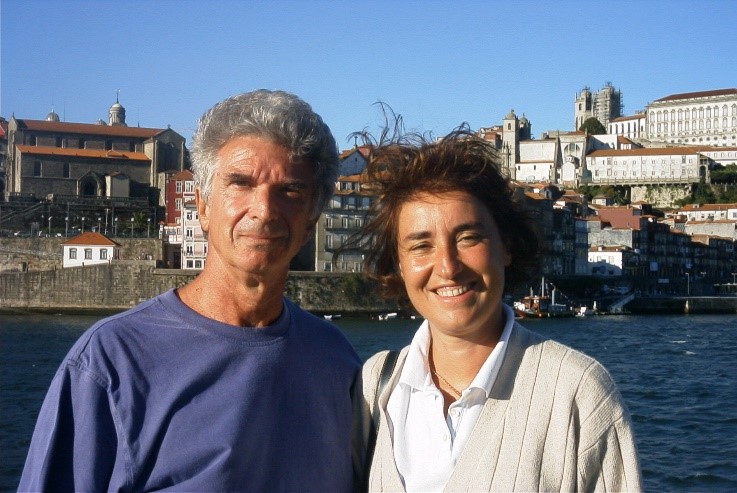
With Roberta Capello at the ERSA Conference in Porto, 2004
Moreover, in the same years, a relevant effort was paid to the construction of mathematical ecology and spatial self-organisation models, linked to precise theoretical and empirical questions. A prey-predator urban dynamics model interpreted the interaction between urban profits (the prey) and land rent (the predator), giving rise to urban life-cycles; a different, self-organisation dynamic model of an urban system - where a stochastic, Schumpeterian innovation element replaced the usual, deterministic export-base element - showed that, for the emergence of a full urban hierarchy in presence of agglomeration costs à la Alonso, increasing net returns to urban scale are crucially needed. This last model (1986), fully elaborated in cooperation with a mathematician, Giorgio Leonardi, and a planner, Lidia Diappi (interdisciplinarity matters!) supplied largely the basis for many subsequent theoretical and econometric advancements in urban economics, achieved recently by the team of regional scholars in our research group at Politecnico di Milano.
The years 1985-2000 were mainly devoted to the construction of the milieu innovateurs theory, an evolutionary approach to the development of local production systems realized by an international group of scholars gathered by Philippe Aydalot at Sorbonne in Paris, the GREMI, led by myself after Philippe’s premature death in 1987. The main theoretical element was represented by the role assigned to local space, that of uncertainty-reducing operator working through the socialized transcoding of information, ‘collective actions’ by private actors and processes of ‘collective learning’ (1991). Empirical testing of this theory was achieved by Roberta Capello in 1999.

With the late Richard Gordon, our American partner, in 1990 in Paris at a GREMI conference
In the same years, working with the scientific committee of DATAR, the French national agency for actions and policies of aménagement du territoire, I was asked to develop the economic rationale and a typology of cooperation networks among cities (réseaux de villes) (1993) that was subsequently used by the European Commission (namely in the ESDP). The concept was once again corroborated by Roberta for the WHO city network project. In these same years I prepared a textbook of Urban Economics (1992), later translated into French (1996) and Spanish, quite innovatively organizing the wide spectrum of existing literature into 5 principles + a summative one devoted to the theory of land rent.
The policy fall-outs of scientific elaborations were always a relevant goal in my mind, and was able to verify the importance of a sound theoretical background for the justification of my proposals when I had the opportunity to serve as Head of the Urban Affairs Department at the Presidency of the Council of Ministers in Rome with the first Prodi Government (1997-98). I also had the same positive experience working in different times as consultant for the European Commission, with Commissioner Giolitti (1977-85), Wulf-Mathies (1997-98) and Cretu more recently, learning at my expense that innovative ideas necessarily – and rightly - need some time in order to be ‘digested’ by political administrations.
Scientific works of mine in more recent times are more accessible and well known. All were achieved thanks to the cohesion, enthusiasm and scientific efficiency of the present team in Milan, co-directed (and now directed) by Roberta Capello. I would just like to remind the MASST model for European regions - a macroeconomic, sectoral, social and territorial econometric model producing conditional quantitative foresights on a scenario basis built for the ESPON project – probably the only truly regional model in use, using the concept of territorial capital, now come to the fourth, updated and expanded version (2005- 2018); the TEQUILA model for territorial impact assessment of European projects and programmes, working at NUTS3 level, including quantitative impacts on territorial efficiency, territorial quality and – for the first time – territorial identity (2009); many works on urban issues (optimal city size; dynamic agglomeration economies; medium-size cities; urban strategic planning; economic assessment of large schemes of urban transformation) and regional and urban policy.
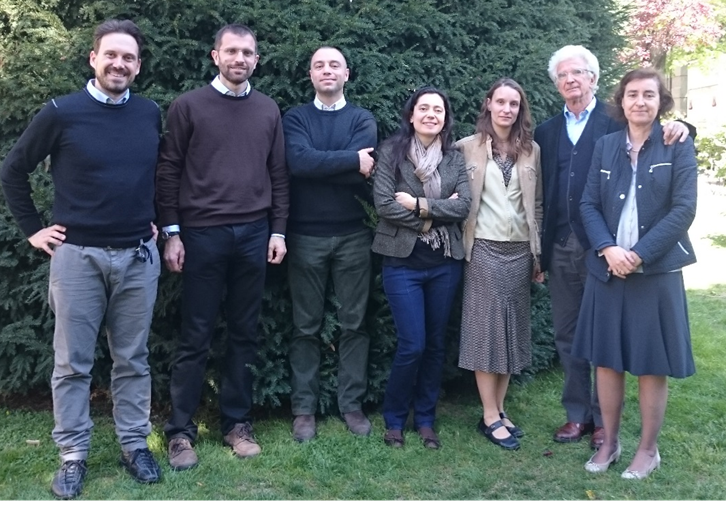
The Regional and Urban Economics team at Politecnico di Milano. Left to right: Ugo Fratesi, Giovanni Perucca, Andrea Caragliu, Camilla Lenzi, Silvia Cerisola, Roberto Camagni, Roberta Capello
When in 2010, after my presidency of ERSA, I was awarded the ERSA-EIB Prize, grateful and proud, again with Dante – when in the Limbo, being called to join the five great poets of antiquity, exclaimed: ed io fui sesto fra cotanto senno – I said “I am the sixth among such intellect” (in fact, the ninth!). The same gratitude and privilege that I felt last year when I was elected Fellow of the RSAI. But my deepest thanks goes to Roberta and the full Milan team, for the joy they provided me in working with them and the emotion for the fiesta and the publication of some of my works (Capello, 2017) they were able to organize – secretly! – last year for my (imposed) retirement.
References
- Camagni R., Capello R., Chizzolini B., and Fratesi U. (2008). “Modelling regional scenarios for the enlarged Europe”, Springer, Berlin.
- Camagni, R. (1980). “Teorie e modelli di localizzazione delle attività industriali”, Giornale degli Economisti e Annali di Economia, March-April, 183-204
- Camagni, R. (1991). “Technological change, uncertainty and innovation networks: towards dynamic theory of economic space”, in Camagni R. (ed), Innovation Networks: Spatial Perspectives, Belhaven-Pinter, London, 121-144
- Camagni, R. (1993). “From city hierarchy to city networks: reflections about an emerging paradigm”, in Lakshmanan T.R., Nijkamp P. (eds), Structure and change in the space economy, Festschrift in honor of Martin Beckmann, Berlin, Springer Verlag, 66-87.
- Camagni, R. (1996). “Principes et modèles de l'économie urbaine”, Economica, Paris.
- Camagni, R. (2009). “Territorial Impact Assessment for European regions: a methodological proposal and an application to EU transport policy”, Evaluation and program planning, 32 (4): 342-350.
- Camagni, R. (2009, 2019 2nd ed.). “Territorial capital and regional development”, in Capello R. and Nijkamp P. (eds), “Handbook of regional growth and development theories”, Edward Elgar Pub., Cheltenham, 118-132.
- Camagni, R. (2016). “Urban development and control on urban land rents”, The Annals of Regional Science, 56 (3): 597-615
- Camagni, R., and Capello R. (2015). “Rationale and design of EU cohesion policies in a period of crisis”, Regional Science Policy and Practice, 7 (1): 25-49.
- Camagni, R., and Capello, R. (2002). “Milieux innovateurs and collective learning: from concepts to measurement”, in Acs Z.J., de Groot H.L.F., and Nijkamp P. (eds), “The emergence of the knowledge economy”, Springer, Berlin, 15-46.
- Camagni, R., and Gibelli, M. C. (1996). “Cities in Europe: globalisation, sustainability and cohesion”, Presidenza del Consiglio dei Ministri, Dipartimento Politiche Comunitarie, European Spatial Planning, Rome, Poligrafico dello Stato, 93-179.
- Camagni, R., Capello R., and Caragliu, A. (2013). “One or infinite optimal city sizes? In search for an equilibrium size for cities”, Annals in Regional Science, 51: 309-341.
- Camagni, R., Capello R., and Caragliu, A. (2016). “Static vs. dynamic agglomeration economies: spatial context and structural evolution behind urban growth”, Papers in Regional Science, 95 (1): 133-158.
- Camagni, R., Diappi, L. and Leonardi, G (1986). “Urban growth and decline in a hierarchical system: a supply oriented dynamic approach”, Regional Science and Urban Economics, 1: 1945-1960.
- Capello R. (ed) (2017). “Seminal studies in regional and urban economics: contributions from an impressive mind”, Springer, Berlin
(Published on RSAI Newsletter 2018 November)
About Us
The Regional Science Association International (RSAI), founded in 1954, is an international community of scholars interested in the regional impacts of national or global processes of economic and social change.

